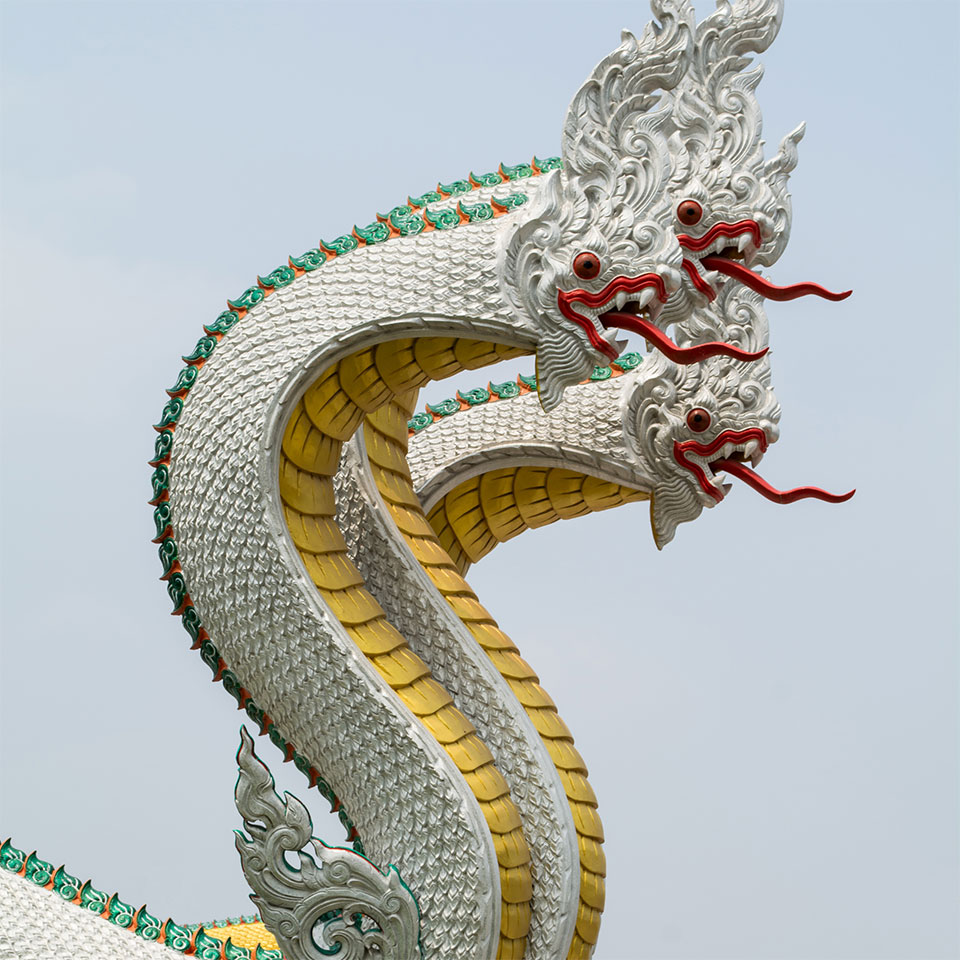Yoga, illusion, and Liberation
Years ago, I was given a carving of Patanjali, the sage credited with codifying the Yoga Sutras—one of the driest, but most foundational texts in all of yoga. I imagined something serene. Peaceful. Lucidly calm. Instead, what I received was a half-man, half-snake creature with a massive cobra hood, eight arms, and a weapon in each hand. He looked less like a peaceful guru and more like something out of a very niche martial arts film. I stared at him for a while.
‘Why does this guy look so angry?’, I thought. I was on my way down the rabbit hole of Buddhism trying not to be violent, myself. Why did this guy get a free pass?
The Battle is Not What You Think
Here’s what I’ve come to understand—after years of practice, patient teachers, and the occasional existential crisis: Patanjali’s fearsome form isn’t aimed at others. He’s not at war with the world. He’s armed to do battle with illusion—with Maya. And Maya, for the record, isn’t just some esoteric veil draped over the universe. No, Maya is far more clever than that. It’s the voice in your head that says:- “You’ll be happy when…”
- “You’re not enough.”
- “You should be doing more.”
- “Her chair pose is better than yours.” (Classic.)
Isn’t Yoga Supposed to Be Peaceful?
Yes. But let’s not confuse peaceful with passive. Real peace—the kind that sticks around when life gets messy—is born of clarity. And clarity takes effort. Sometimes, it takes eight arms and a few symbolic weapons. Yoga isn’t just stretching in candlelight while listening to flutes. It’s waking up. And waking up, as anyone who’s ever left a warm bed at 6 a.m. can tell you, isn’t always gentle.From Auto-Pilot to Awareness
The physical practice of yoga—asana—is often our entry point. We start with the body, and slowly, gently, we begin to notice:- Our breath
- Our habits
- The nervous system’s whisper beneath the surface
Yoga Is a Raft
The ancient yoga texts say yoga is like a raft—carrying us across the river of illusion into truth. We cross from:- Fragmentation → Wholeness
- Fear → Compassion
- Outer distraction → Inner wisdom
A Mantra for the Journey (It’s actually in the soundtrack to The Matrix, 2!)
Asato Ma Sat Gamaya Lead me from the unreal to the real Tamaso Ma Jyotir Gamaya Lead me from darkness to light Mrityor Ma Amritam Gamaya Lead me from death to that which is eternal Om Shanti Shanti Shanti Peace, peace, peaceFinally…
So yes—Patanjali looks a bit terrifying. Like a mythological bouncer for the gates of enlightenment. But that’s the point. Sometimes truth needs a bit of bite. Sometimes compassion wears a sword. And sometimes, to get to serenity, you have to pass through a little fire. The good news? You’re already holding the tools. The sutras. The practice. The sangha (our yoga community.) You’re already on the path. The illusion only has power if you believe it. Now breathe. Stretch. And let’s set ourselves free.




Leave a Reply